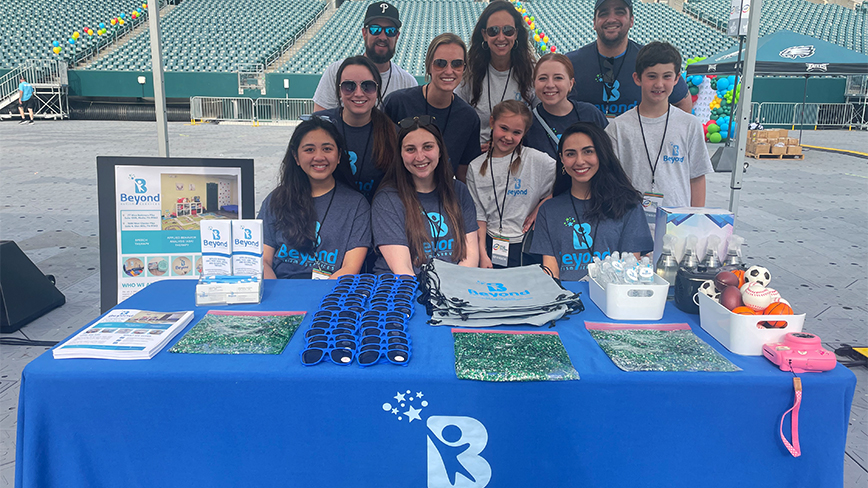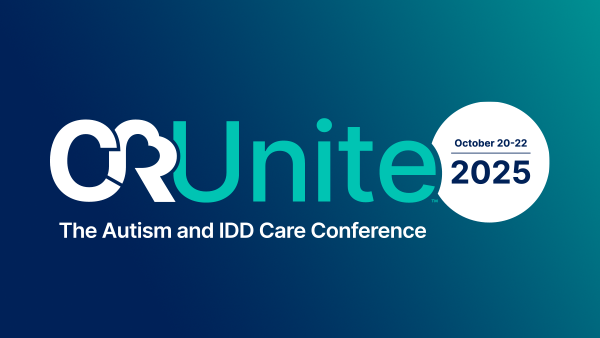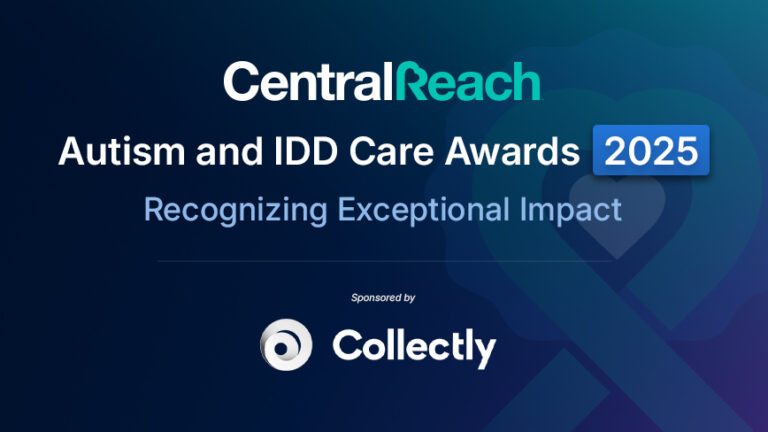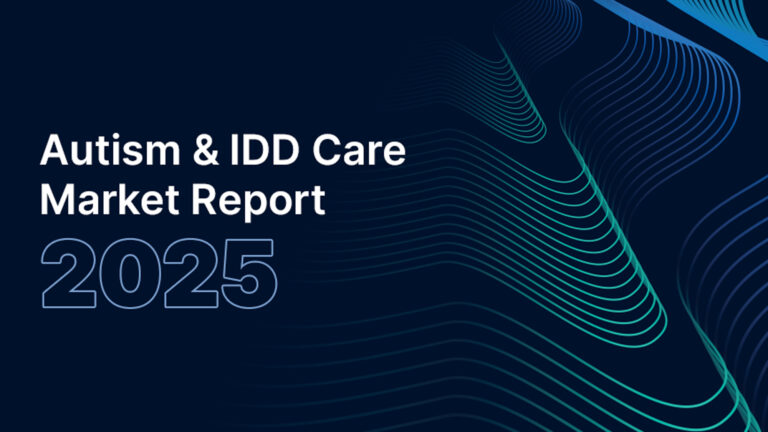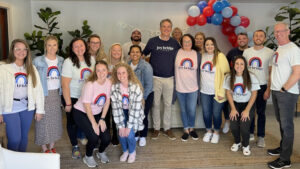Proactive steps we can take to self audit, eliminate implicit biases, and initiate change to become advocates against racism.
CentralReach was lucky enough to host Joy F. Johnson, M.Ed, M.S. as a speaker on June 19th as part of our Juneteenth celebration and ongoing organizational effort to increase our knowledge and take action in the disassembling of both overt and subtle practices that support systemic racism. Joy spoke with CEO Chris Sullens about her own experiences, the proactive steps we can take to self audit and eliminate implicit biases, and initiate change to become advocates against racism.
Joy is the founder of Spectrum Support® and is a Behavior Specialist, Inclusion Specialist, and Autism Advocate who partners with organizations, individuals, and families to improve the lives of Autistic people. In addition to her extensive professional credentials, she has a great deal of personal experience; she is both Black and Autistic, which brings unique perspective, knowledge, and a source of passion to her work.
Raised by adoptive Caucasian parents, Joy became startlingly aware of the racism and biases around her -- both implicit and explicit -- after marrying a Black man. Since then, she has made it her mission to raise awareness around racism, particularly as it relates to the Black Autistic community.
In speaking with Joy, she provided us with proactive steps we can take to self audit, shed implicit biases, and become more open minded and inclusive friends, colleagues, and human beings.
10 steps we can take to become part of the solution against racial intolerance -- in the ABA field, and beyond.
-
Take an honest self inventory. Audit your own upbringing, thoughts, actions, and even behaviors you may not be aware of. Are there biased or racist beliefs you picked up on as a child that you’re still subconsciously holding onto? Do you assume clients of a specific race, gender, culture, socioeconomic background, or sexual orientation will act a certain way? Self-awareness is the first step in overcoming your own prejudices -- overt or covert.
-
Educate yourself. The language you use, things you say, and manner in which you act -- both in personal and professional settings -- could be making those with different backgrounds feel uncomfortable. The only way to combat this is through knowledge and self-awareness. Make a diligent effort to do what it takes to become educated about people of different races, cultures, and backgrounds.
-
Don’t be afraid to ask questions. In order to learn, we have to ask questions. Joy said a phrase she uses often is, “silence is violence.” It’s important to ask honest questions in the pursuit of knowledge -- even at the risk of inadvertently offending someone. Ask honest questions, have potentially awkward conversations, and do everything you can to lean into uncomfortable situations in the pursuit of learning, fighting discrimination, and ultimately closing the gap.
-
Ensure your materials are inclusive. Do the books, social stories, and materials you use with clients feature people from one specific race or culture? If so -- it can be difficult for children from other backgrounds to relate. They may even feel unseen. Be sure to adapt your materials to include all backgrounds, not just the one(s) you are most comfortable with.
-
Speak up. When you hear others using biases or racist terms, do you intervene? You should. Though it may be awkward, it could serve as a teachable moment and/or opportunity to educate someone who may not understand that they’re being offensive. If you speak up and are able to facilitate a meaningful conversation, he or she will walk away with knowledge they didn't have prior.
-
Facilitate intentional engagement. According to Joy, we should not just “talk about it, but be about it.” She encourages individuals to engage in activities that achieve racial equality in our field. Find events, activities, and gatherings that will allow you to get to know individuals that are different from you on a personal level. Expand your friendship circles, and in the process, expand your mindset!
-
Change your hiring practices. As an organization, think about whether you’ve historically hired people that are “like you” -- racially, culturally, or ideologically. Joy said that in many cases, “the majority ends up helping the majority.” Ensure your hiring practices are inclusive, and that those in charge of recruitment and hiring are provided thorough training on racial injustice, equality, implicit bias, and other critical areas.
Try implementing company wide unconscious bias training to bring heightened awareness to topics like affinity bias, halo bias, confirmation bias and more. Continue to leverage competency based interview guides to create continuity in the interview process and mitigate room for bias. Foster an environment of accountability and deeper understanding of what culture, diversity and inclusion means and the value that diverse teams add to the organization, products and more.
-
Be cognizant of cultural differences in the workplace and among clients. A person’s culture may affect how he or she behaves at work or while receiving services. If you aren’t aware of these cultural differences, you may draw assumptions -- leading to misunderstandings and even conflict. Make a diligent effort to celebrate diversity, encourage colleagues and/or clients to share stories about their backgrounds, and show that you value their differences.
-
Don’t make assumptions about the populations you serve. When it comes to clients, Joy said that oftentimes Black children are diagnosed with Autism at lower rates -- or it takes longer -- because certain behaviors are attributed to racial biases - for example, children are classified as deviant vs. autistic. She herself has experienced working with people who have already made assumptions about her before even meeting her due to her race and Autism diagnosis. This is why education is so critical.
-
Step out of your comfort zone. This final step is essential in becoming part of the fight against systemic racism and injustice. Recognize that while you’ll never understand what it’s like to walk in shoes of someone that is a different color, culture, or background -- you can, and should, do what it takes to learn as much as you can. Though it might feel uncomfortable, lean into the discomfort and expand your perspective.
Our differences are what make us unique as human beings, but they can also be the cause of great pain and suffering when there is a lack of understanding and acceptance from those around us. It’s our responsibility as friends, colleagues, organizations, and human beings to do what it takes to educate ourselves and evolve. Learn as much as you can, join the conversation, and ask how you can help. We must all become leaders as it relates to the fight against systemic racism and discrimination that still permeates our nation.
About Joy Johnson
Joy Johnson, M.Ed, M.S. is a Behavior Specialist, Inclusion Specialist, and Autism Advocate who partners with organizations, individuals, and families to improve the lives of Autistic people. After spending years working in clinical settings, non-profits, and schools, her experience enables her to truly serve and represent autism community members in various contexts. Joy holds a Masters in education, a Masters in psychology with a specialization in ABA, and is currently a PhD candidate. She is the founder of Spectrum Support®.
About CentralReach
CentralReach is the leading provider of Autism and IDD Care Software, providing the only complete, end-to-end software and services platform that helps children and adults diagnosed with autism spectrum disorder (ASD) and related intellectual and developmental disabilities (IDD) - and those who serve them - unlock potential, achieve better outcomes, and live more independent lives. With its roots in Applied Behavior Analysis, the company is revolutionizing how the lifelong journey of autism and IDD care is enabled at home, school, and work with powerful and intuitive solutions purpose-built for each care setting.
Trusted by more than 200,000 professionals globally, CentralReach is committed to ongoing product advancement, market-leading industry expertise, world-class client satisfaction, and support of the autism and IDD community to propel autism and IDD care into a new era of excellence. For more information, please visit CentralReach.com or follow us on LinkedIn and Facebook.
Media Contact:
CentralReach
pr@centralreach.com
